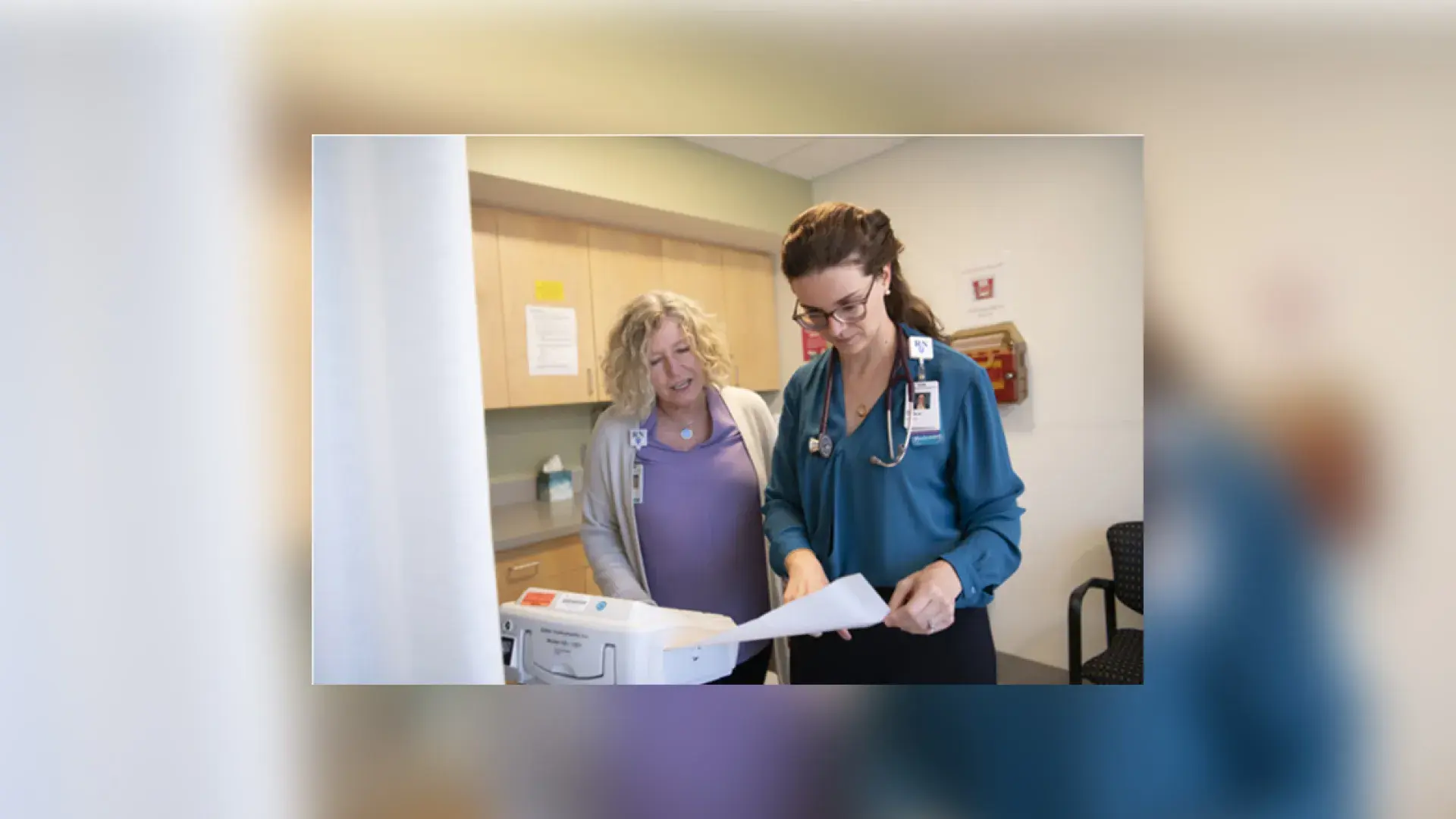
Double degree holder from MGH Institute credits education, hard work, and IHP/MGH communities for her success
Sarah Luppino works with patients who have been diagnosed Amyotrophic Lateral Sclerosis (ALS), the complex and terminal neuromuscular disease with no cure. But that’s not stopping her and her team from trying to find one.
As Site Director for the Neurological Clinical Research Institute and Healey & AMG Center for ALS Research at Mass General Hospital, one of the largest ALS clinic and research centers in the world, Luppino works with neurologists and a multidisciplinary research team to discover novel treatments and therapies for people with ALS.
“We have a number of innovative and complex clinical trials,” said Luppino, who earned her ABSN degree from the MGH Institute in 2014. “We see close to 1,000 patients a year. And our research has really exploded since I started. We have approximately 10 active interventional trials right now alone being conducted at our site. And we see hundreds of patients in our research center every year.”
Luppino is also a Nurse Practitioner at the hospital’s ALS Multidisciplinary Clinic, a clinic she says is largely nursing-run.
“Taking care of someone with ALS requires intensive assessment and symptom management, critical thinking, and palliative care, and nurses are really the heart of our clinic as point people for patients and their families,” said Luppino, who has made sure clinic nurses are consistently involved in research and leadership roles. “I've been able to be part of incredible initiatives where we can advocate for Nurse Practitioners to step in as leaders at the investigator level and run clinical trials. That means helping to design protocols, consenting patients to research trials, prescribing, and overseeing their investigational therapy, supporting them in their disease management, and performing procedures.”
Luppino works with a multi-disciplinary team of research nurses, nurse practitioners, neurologists, physical therapists, speech language pathologists and more than 30 research coordinators and interns who help run the trials with industry and academic collaborators. As site director, she oversees the hiring, project structuring and workload allocation.
“My role requires a lot of program management and adaptive planning to meet the needs of the patients and research landscape,” she said. “I also act as an investigator on a number of the trials, consenting of patients to research studies and overseeing their treatment. And then I also see patients in the multidisciplinary clinic. I wear many hats in my role with lots of tasks to juggle, but I love it. The MGH Institute prepared me well as a Nurse Leader and critical thinker.”
The Institute is where Luppino enrolled after graduating from Boston College with a biology degree and realizing that she wanted to become a nurse. After earning her ABSN degree, Luppino was interested in a job that combined research and clinical care. She saw a research nurse position open up at Mass General Hospital in neurology, applied, and got the job. After four years of working as a registered nurse, Luppino went back to the MGH Institute to become a nurse practitioner, graduating from the Direct Entry Nursing program in 2020.
“Transitioning into an NP role has allowed me to really try to grow the nursing role at our institution in research, and I've been able to be part of a lot of initiatives where we're really advocating for NPs to step in as leaders at the investigator level and clinical trials,” said Luppino. “So, helping to design protocols, consenting patients to research trials, following their participation, and performing procedures.”
Luppino says some of the policies that guide research are outdated because they only focus on doctors as researcher, and not necessarily nurses as investigators on trials. That’s why she’s involved in the Advanced Practice Provider (APP) Research Committee designed to expand what nurses can do in the research realm.
“There was an unwritten rule that APPs couldn't prescribe investigational drug in the setting of a clinical trial,” noted Luppino. “And we were able to get all the parties involved to come together to a consensus on a standard operating procedure that says nurse practitioners, advance practice providers and physician assistants are able to prescribe investigational drugs within our scope, and here's some of the parameters around which we could do it. So that's a huge win that just got approved.
For Luppino, a full circle moment of sorts because some of her MGH Institute mentors are on the APP Research Committee.
“That’s been amazing to have some of the instructors that you looked up to also be the colleagues on some of these initiatives,” said Luppino. “So, it's just been really rewarding to be a part of a community at MGH, where I feel like the IHP overlap is always there.
“I had a fantastic experience at the IHP. I found the classes to be rigorous, but the advisors that I had, and teachers, to be really supportive. They really take the time to prepare you for the real world. It's not just a matter of memorizing facts and side effects and things like that. There's a lot of practical application and learning that is super valuable.”
Do you have a story the Office of Strategic Communications should know about? If so, let us know.
